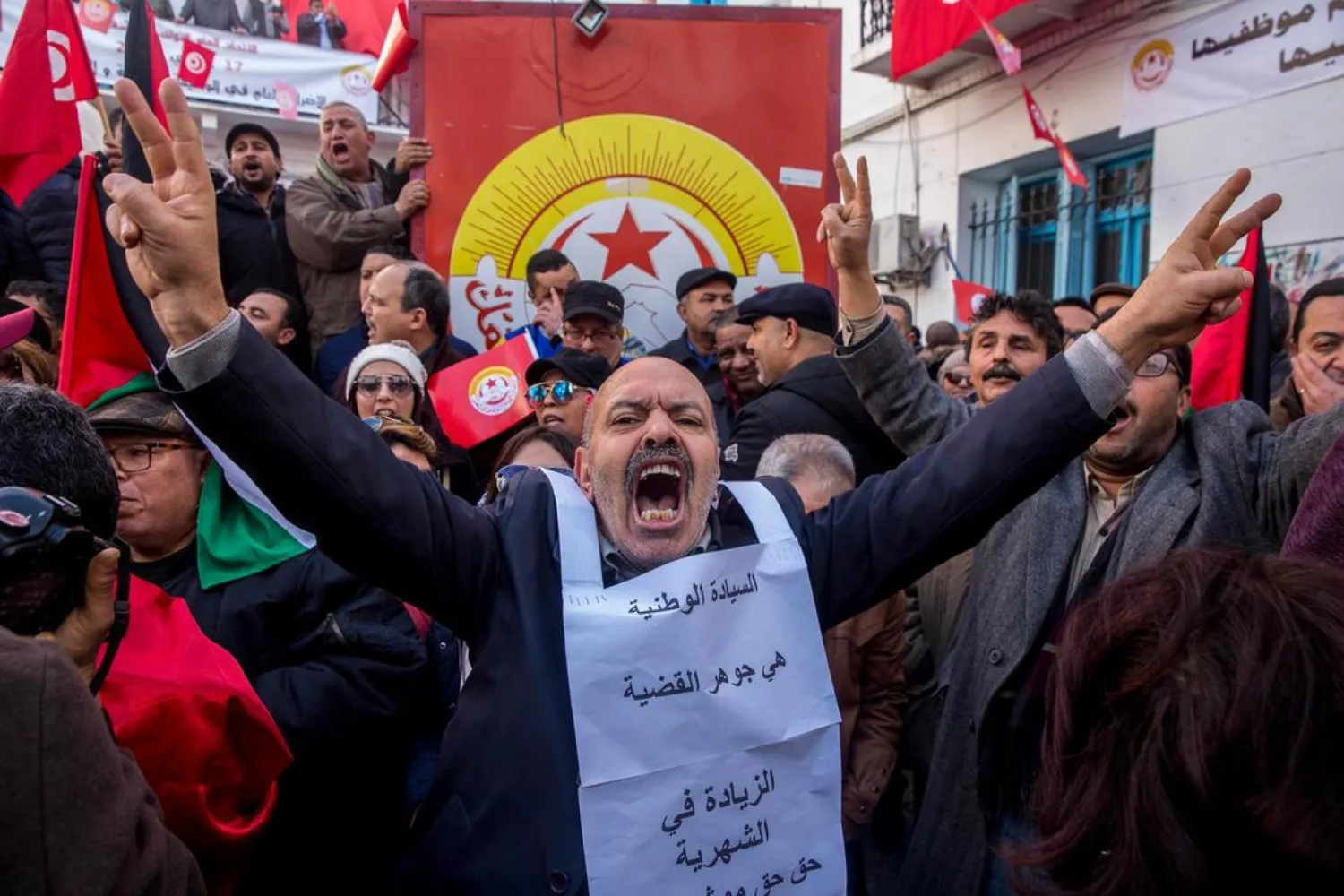Tunisia's powerful UGTT trade union confederation, locked in a dispute with the government over wage raises, has said it is open to compromise ahead of February strikes -- "but not at any price".
Secretary General Noureddine Taboubi told Agence France Presse that the Tunisian General Labor Union wants to be involved in elections later this year.
The UGTT staged a mass public sector strike last week as talks with the government on social and economic reforms remained deadlocked.
It has since called further strikes for February 20 and 21, demanding bigger public sector wage increases in a country battling soaring unemployment and inflation of 7.5 percent.
"We don't want to strike for the sake of striking," Taboubi said in an interview Monday.
"We have announced another strike in a month, in the hope that we'll find a compromise. But not at any price."
Public sector employees make up around a quarter of Tunisia's workforce.
The UGTT has demanded higher public sector pay rises than those on offer by the government, as well as guarantees protecting some of Tunisia's many publicly owned companies from privatization.
It said some 90 percent of public sector workers had observed the January 17 strike, which caused mayhem in the country's airports, despite calls from President Beji Caid Essebsi for them to stay at their posts.
Taboubi said Monday that negotiations were still in progress, noting there were four weeks left to reach an agreement.
Prime Minister Youssef Chahed has said the state of Tunisia's public finances means it cannot meet the UGTT's demands.
But the UGTT has sharply criticized the government for accepting a 2.4-billion-euro loan from the International Monetary Fund in exchange for pledges to carry out sweeping economic reforms.
Taboubi said it would play a role in this year's presidential and parliamentary elections, pledging to remain "peaceful and civilized".
"I repeat: this has nothing to do with wanting to bring down this government or any other," he said.









